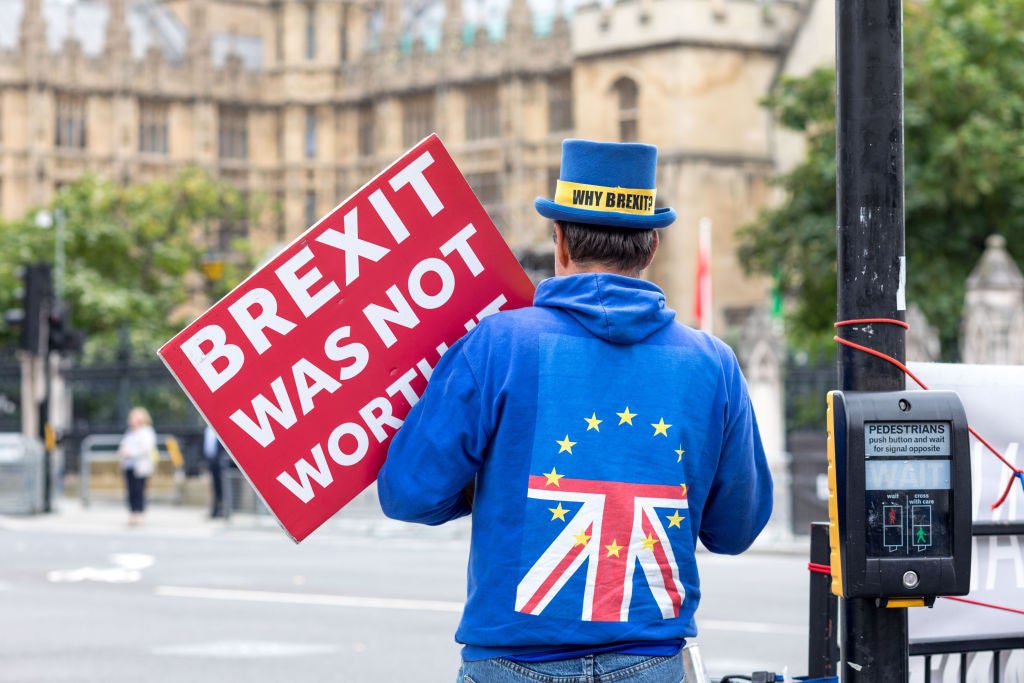This article discusses the long-term impact of Brexit, the United Kingdom’s departure from the European Union. It explores the consequences on the UK’s economy, immigration, trade, political ramifications, and social and cultural shifts. The immediate aftermath of Brexit led to economic uncertainties and a decline in business confidence and investment. The political fallout includes deep divisions within the UK, debates on national identity, and weakened EU position. The end of freedom of movement within the EU raises questions about immigration policies and the labor market. Trade and market access are still uncertain, with concerns over non-tariff barriers and the ability to negotiate new trade deals. Brexit has also exposed social and cultural divisions, with hate crimes and calls for Scottish independence. The long-term impact of Brexit will shape the future of the UK and the EU.
Brexit Fallout: The Long-term Impact of the UK’s Departure from the European Union
Introduction
The United Kingdom’s departure from the European Union, commonly referred to as Brexit, has had far-reaching consequences that extend beyond short-term effects. As the UK officially left the EU on January 31, 2020, a transition period began, during which both parties negotiate their future relationship. While the immediate aftermath of Brexit included economic and political uncertainties, the long-term impact of this historic decision is yet to be fully understood. This article explores the potential consequences of Brexit on various aspects of the UK’s economy, immigration, trade, and more.
Economic Impact
One of the major concerns surrounding Brexit was its impact on the UK’s economy. The withdrawal from the EU created uncertainty and led to a decline in business confidence and investment. While the UK and the EU have managed to agree on a trade deal during the transition period, there are still concerns over access to the EU market, especially for the UK’s financial services industry. Additionally, the UK’s departure has resulted in the loss of free trade agreements with third-party countries negotiated by the EU, and the need to negotiate new deals independently. The long-term economic consequences of these changes will depend on the outcomes of the upcoming trade negotiations and the ability of the UK to adapt and forge new economic relationships.
Political Ramifications
The political fallout of Brexit has been evident both within the United Kingdom and throughout the EU. In the UK, the decision to leave the EU has caused deep divisions, leading to debates on national identity, sovereignty, and the future of the union itself. The issue of Scotland’s independence has resurfaced, as the majority of Scots voted to remain in the EU. In Europe, Brexit has weakened the EU’s position and has encouraged other member states to reconsider their relationship with the bloc. The departure of the UK, a major economic and political power, has undoubtedly shaken the foundations of the European Union and may impact its future viability.
Immigration and Freedom of Movement
One of the central discussions during the Brexit campaign was immigration and the freedom of movement within the EU. As a member of the EU, the UK implemented policies allowing for the free movement of people among member states. Brexit has signaled an end to this free movement, with the UK now able to implement more stringent immigration policies. While the UK government has vowed to create a points-based immigration system that prioritizes skills, the long-term impact on the labor market and industries reliant on migrant workers remains uncertain. Furthermore, Brexit has significant implications for the status of EU citizens living in the UK and UK citizens living in the EU, with both groups facing complexities and uncertainties regarding their rights and residency.
Trade and Market Access
The impact of Brexit on trade and market access is yet to be fully realized. During the transition period, the UK and the EU have agreed on a trade deal that ensures tariff-free trade in most goods, although new customs and regulatory checks will inevitably result in increased bureaucracy and costs. The agreement also allows for a continuation of cooperation in various areas, such as security and data sharing. However, there are concerns over the impact of non-tariff barriers, particularly for industries such as financial services and the automotive sector. Additionally, while the UK is now free to negotiate its own trade deals with third-party countries, it remains to be seen how successful these negotiations will be and how they will compensate for any loss of access to the EU market.
Social and Cultural Shifts
Brexit has also had significant social and cultural implications. The decision to leave the EU was driven by a desire for greater national control and a sense of reclaiming sovereignty. However, it has also exposed deep divisions within the UK society, with generational, regional, and socio-economic gaps becoming more evident. The rise in hate crimes and xenophobic incidents following the Brexit vote reflects the underlying anxiety and tensions within society. Moreover, Brexit has highlighted the challenges of maintaining the union itself, with increased calls for Scottish independence. The long-term social and cultural shifts resulting from Brexit will likely shape the future of the UK and have lasting impacts on the nation’s identity and unity.
Conclusion
The long-term impact of Brexit will extend far beyond the initial separation. The economic, political, and social consequences of the UK’s departure from the EU will continue to unfold and shape the trajectory of both the UK and the European Union. While there are still uncertainties and challenges ahead, it is clear that Brexit has already left a lasting mark on the UK and will continue to be a topic of debate and analysis for years to come.
